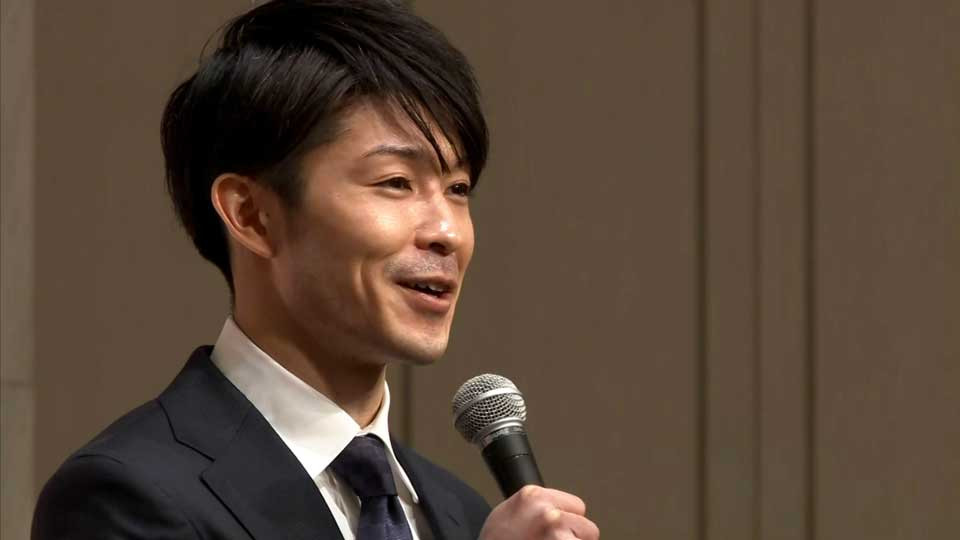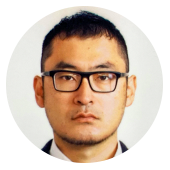Bowing out gracefully
"If I continued to challenge myself as an athlete, I wanted to aim for the Paris Olympics in three years. But it would be impossible," the gymnastics legend told a January 14 news conference. Uchimura explained he has lost the motivation required to stay at the top of the sport: "My feelings are more problematic than any pain in my body."
He delivered the news with a smile on his face. There were no tears and no disappointment as he spoke about his career – and what's next in store.
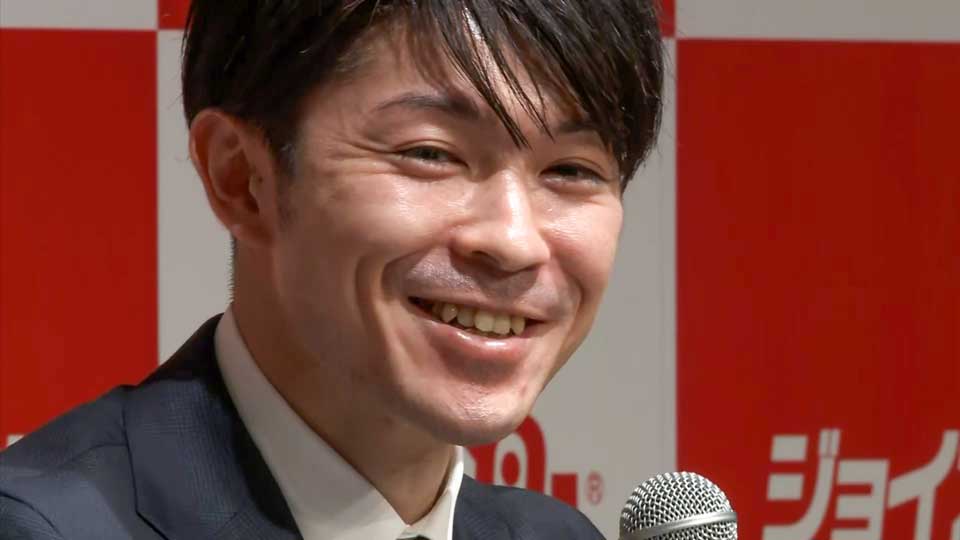
Greatest of all time?
While basketball fans like to discuss whether Michael Jordan or LeBron James is the greatest of all time, there is no debate in men's gymnastics. Uchimura has been king of the sport for a long period.
Men's artistic gymnastics, one of the oldest Olympic sports, consists of 6 apparatus: floor exercise, pommel horse, rings, vault, parallel bars and the horizontal bar. The individual all-around champion is called the "king of gymnastics."
Uchimura won all international competitions from 2009 to 2016, including two Olympic Games and six world championships. He is the fourth person in history to win back-to-back Olympic titles. His run of six consecutive world championships titles is unmatched.

At the Rio de Janeiro Olympics in 2016, Ukrainian Oleg Verniaiev, silver medalist in the all-around, spoke highly of his Japanese competitor. "Uchimura is the legend in gymnastics, just like Michael Phelps in swimming or Usain Bolt in athletics. It was an honor to compete," he said.
At a competition held in the US that same year, an international gymnastics federation official described Uchimura as "the best in history." "He keeps the balance of difficulty and execution at an extremely high level. All gymnasts know he is the one to beat."
An early start
Uchimura was a three-year-old when he started gymnastics at a club run by parents. He practiced on a trampoline during his childhood and honed his skills and technique as he grew older.
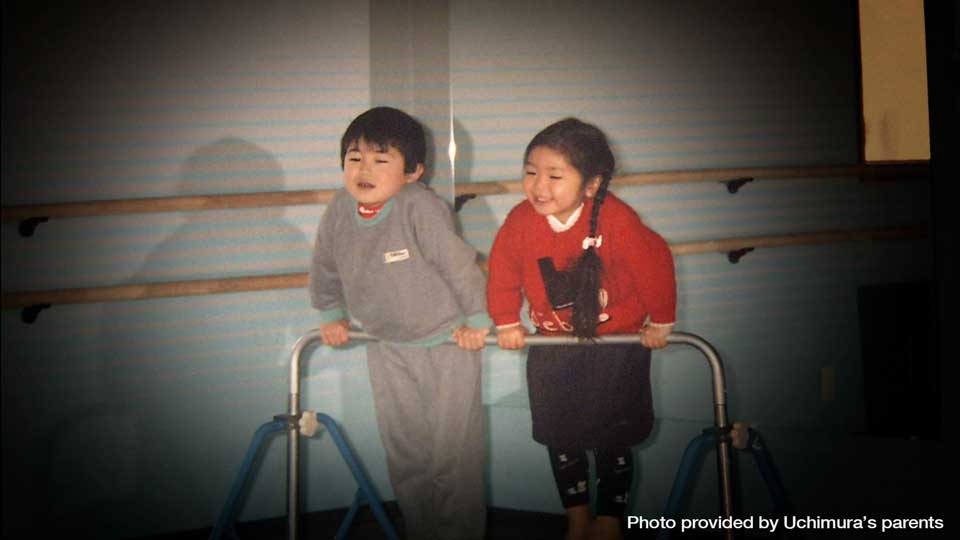
At the age of 19, he was selected to represent Japan at the 2008 Beijing Olympics. He won silver in the all-around.
While gymnasts face a serious risk of injury when they reach high difficulty levels, Uchimura was largely able to avoid that. His supreme skills meant he could practice more than most.
When he won his second all-around Olympic title in Rio, Uchimura was 27 years old. By then his age, and with it the countless sprains he had suffered, could have made it time to retire. "My back aches every day and the ankles are loose when they are not taped," he said at the time.
But still he was striving for more. "You can't tell just by looking, but it's different every time, even a single somersault, depending on the way your body moves and your mindset," he said. "I always consider how to make it more accurate and land perfectly. It is very interesting to think and put it into practice. I haven't been able to do it perfectly yet."
A genuine love for the sport was Uchimura's key motivation, supporting three decades of effort to achieve his best performances.
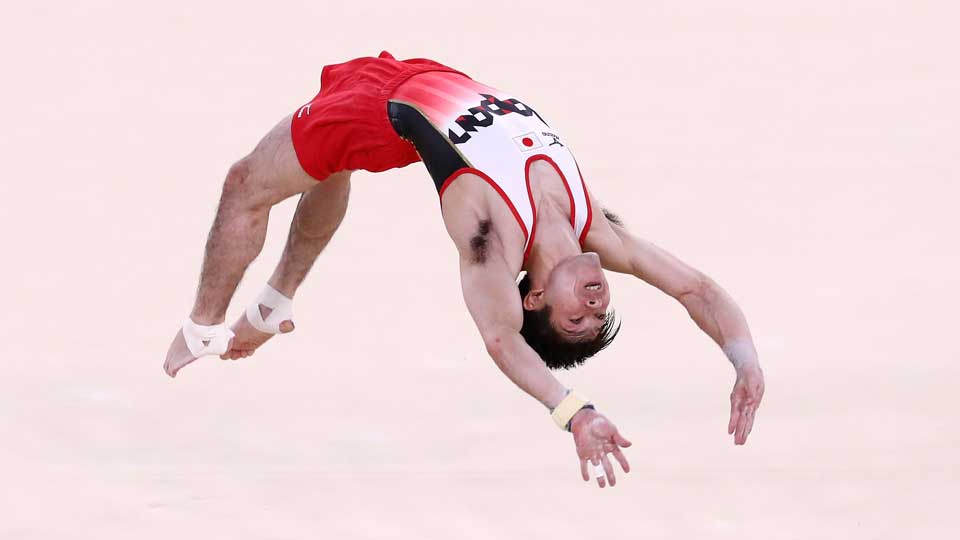
The perfect landing
Uchimura was acutely aware of the importance of a clean landing. The scoring system in gymnastics consists of two elements, execution (E-score) and difficulty (D-score). The E-score has a maximum of 10.0, with points deducted for mistakes. A move at landing leads to a 0.1-point deduction, rising to at least 0.3 if both legs move.
During his daily practices, Uchimura focused on landing with precision and intense concentration, just like in competition. It paid off many times, notably at the Rio Olympics.
The all-around final in Rio was a fierce competition between Uchimura and Oleg Verniaiev. Neither made any major mistakes in the first five apparatus. Ahead of the final part of the competition – the horizontal bar - Verniaiev enjoyed a marginal lead.
Uchimura needed to dig deep and was able to execute a landing without moving, despite injuring his lower back in the middle of the performance. His score of 15.800 (E-score 8.700) was the best mark achieved at the Rio Olympics. Meanwhile, Verniaiev moved forward on his landing, scoring 14.800 (E-score 8.300). Uchimura took the lead by 0.099 to win the gold as the venue erupted in cheers.
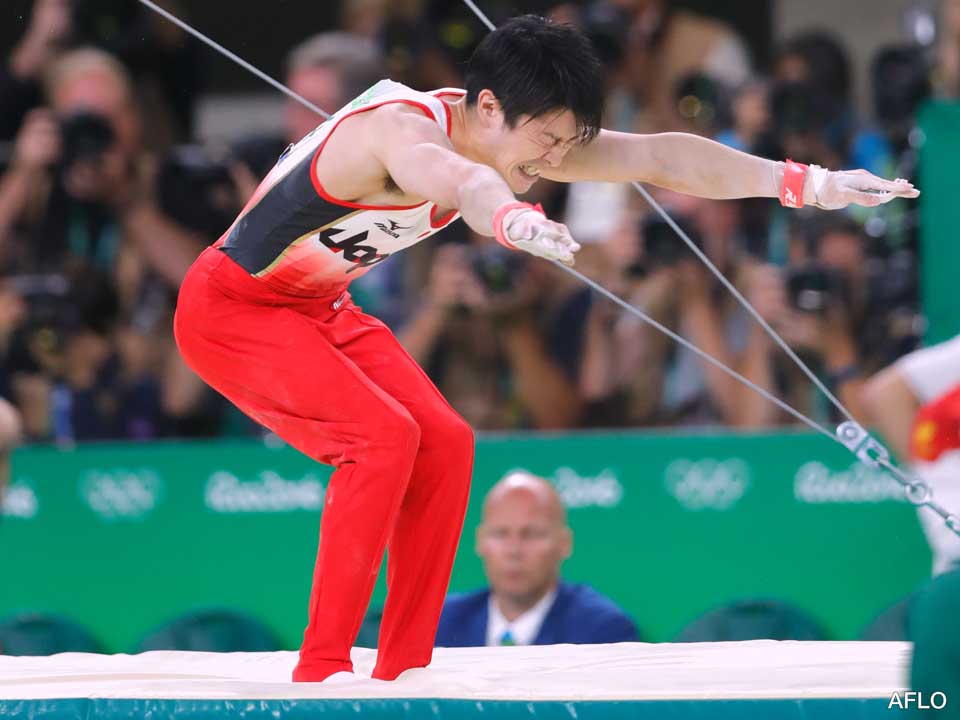
At Uchimura's retirement announcement, he described the Rio Games as an unforgettable moment. "Oleg and I were rivals in a battle that will go down in Olympic history. I am proud of how I executed final landings throughout my career. As a world champion, I focused on it."
The way forward
At the world championships in 2017, Uchimura broke his left ankle during the competition. From that time on, he became increasingly troubled by injury. He gave up the all-around event and concentrated solely on the horizontal bar for the Tokyo Olympics.
Competing in Tokyo was what he called "the biggest goal in life" and he became a four-time Olympian. His dream to win a gold medal at home crumbled however when he fell in the qualifying round.
Reflecting on the five years he spent preparing for the Tokyo Olympics, he noted "the result was far from that of Rio, but the time devoted to practice, devising ways to face the pain I battled through, has taught me more about this sport than other gymnasts and coaches around the world."
"I have also come to understand that there is no end to gymnastics. I think glory and failure are valuable experiences that will help me motivate people in the future".
After retirement, Uchimura will become an advisor coach for the Japan Gymnastics Association to train the next generations. He won't compete any more, but does plan to perform at exhibition events and activities promoting gymnastics for children.
It is that there are about 800 moves in gymnastics, according to Uchimura "of which about 500 are possible". He will continue on his quest: "There is no answer to techniques or moves, and I want to keep pursuing them. I plan to continue to increase my skills".
